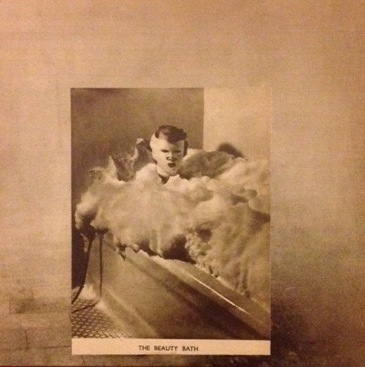If one has kept an ear to Aaron Dilloway’s music in the last several years, they’ll know that, while much has changed, it is the things which have remained the same that are perhaps more remarkable. Since leaving Wolf Eyes a decade ago, Dilloway has narrowed his musical outlets almost exclusively to analog synths and loops (creating the latter utilising both reels and 8-track tapes), and rarely both in tandem. One would expect the latter, in its ad nauseam repetition, to lose its luster after awhile for both artist and listener. It’s a testament to Dilloway’s skill and imagination, then, that these self-imposed limitations have only made his work more arresting.
Dilloway’s sharp focus, which is doubly impressive in the face of his raising a family and founding a brick-and-mortar Hanson Records store, has allowed him to become a master of his machines, expanding his sonic palette without ever abandoning the basic framework established ab initio. Anyone can play with loops, but Dilloway transcends his Michigan basement-croucher roots to wield them much as Derek Bailey once wielded a guitar, in a fashion simultaneously deft and idiosyncratic. In other words, the tools used in Dilloway’s work are not the convenient means to an end of a noise dilettante: they are his instrument.
The Beauty Bath, Dilloway’s new 12" picture disc (a reissue/reimagining of a hyper-limited record of the same name released last year by Japanese label Rockatansky), is not his "major statement"—he already took care of that with 2012’s Modern Jester—but it’s still a formidable addition to the catalog. Dilloway’s crusty, seasick looping is here in full effect, but the sound is sparser and less assaultive than one might expect: the composition is, in fact, so spacious at times that I had to work to differentiate the sounds on the record from surrounding ambient noise.
The A-side, while distinctively a Dilloway creation, sounds like another link in the chain of classic tape-music tradition. The occasional abrupt tape cuts call to mind the homemade crudity of early Hands To or Eric Lunde, but there is also a certain lightness of tone akin to that of the elder statesmen of The Los Angeles Free Music Society. Tod Dockstader’s "organised sound" casts something of a shadow over The Beauty Bath, as well, but any traces of Dockstader’s clean tones are overtaken by grime, encrusted with a layer of arid, unidentified gunk.
The B-side, for the most part, takes a different tack: it’s even more spacious and, surprisingly, almost pretty at times. I can’t put my finger on the primary tone source that dominates this side’s second half, but it vaguely recalls those made by the Luray Caverns stalacpipe organ. The result is slightly more zoned and debatably less focused than some of Dilloway’s work, but it makes up for it by being uncharacteristically hazy and meditative.
As a lifer, Dilloway has watched many trends in the out-sound universe come and go without engaging them (save, of course, the confrontational harsh-noise brutality that he helped to popularise with Wolf Eyes); his one-time peers, meanwhile, have proven more accommodating, dipping their toes into everything from techno to kosmische Musik to "trip metal". Don’t expect any such turn from Dilloway, though. When I interviewed him a decade ago, he stated his (and in this case, Wolf Eyes’) mission thusly: "we do this shit for the dudes who like this shit. If someone doesn’t like it, fuck ’em".
As true now, most likely, as the day it was spoken. The Beauty Bath continues to take Dilloway well away from the worn path of more popular dabblers, and as such is unlikely to be particularly au courant. Still, for "the dudes who like this shit", The Beauty Bath is another essential piece to one of a puzzle that continues to intrigue and surprise.
<div class="fb-comments" data-href="http://thequietus.com/articles/16178-aaron-dilloway-the-beauty-bath-review” data-width="550">


